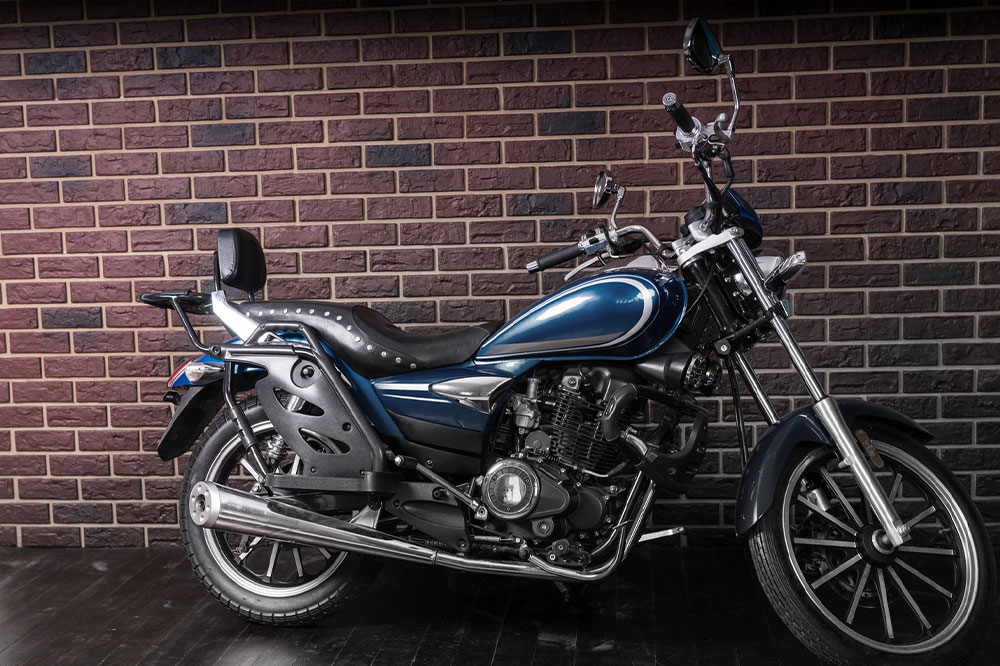Comprehensive Guide to Accurately Valuing Used Motorcycles for Sellers
This comprehensive guide provides essential strategies for accurately valuing used motorcycles. It emphasizes key pricing factors, explores useful tools like online calculators and expert appraisals, and offers practical tips to help sellers set fair, competitive prices. Understanding market trends, condition, and demand ensures each seller can maximize their sale potential with confidence. Perfect for motorcycle owners, dealers, and enthusiast sellers seeking reliable valuation methods, this article offers detailed insights to facilitate a successful sale every time.

Comprehensive Guide to Accurately Valuing Used Motorcycles for Sellers
When preparing to sell a motorcycle, understanding its true market value is a crucial step that can significantly impact the success of your sale. In the competitive world of used motorcycle sales, knowing how to accurately determine the worth of your bike helps you set a fair price, attract genuine buyers, and close the deal efficiently. While assessing a used motorcycle's value may seem challenging at first glance, employing a systematic approach using the right tools, detailed knowledge of market trends, and honest evaluation of your bike's condition makes this process manageable and even straightforward.
Researching current market trends, examining similar listings, and consulting with industry experts are vital components of establishing an accurate motorcycle valuation. Market demand for particular brands or models fluctuates over time, influenced by factors such as technological advancements, brand reputation, and consumer preferences. Therefore, staying informed about these shifts is essential for setting a competitive price.
Several key factors influence the value of a used motorcycle, including mileage, age, overall condition, brand reputation, modifications made, and current market demand. A thorough understanding of these elements enables sellers to appraise their bike realistically and avoid undervaluing or overpricing, which could either lead to lost sales or financial losses.
Key Factors That Drive Used Motorcycle Pricing
Mileage: The total miles ridden are a fundamental determinant of a motorcycle’s value. Generally, bikes with lower mileage are more desirable because they tend to have less engine wear, fewer mechanical issues, and a longer remaining lifespan. Buyers often perceive low-mileage bikes as more reliable and worth a premium price.
Age of the Motorcycle: Like most vehicles, the age impacts depreciation. Newer models tend to hold their value better, thanks to the latest features and technology. Conversely, older bikes usually depreciate over time, reducing their resale value unless they are rare collectibles or vintage models.
Overall Condition: An impeccably maintained motorcycle with minimal scratches, corrosion, and a healthy engine will command a higher price. Maintenance records, evidence of proper storage, and recent repairs can enhance perceived value. Conversely, bikes with significant cosmetic damage, mechanical issues, or neglect tend to sell for less.
Brand and Model: Certain manufacturers and specific models maintain higher resale value due to reputation, performance, and popularity among enthusiasts. Iconic brands like Honda, Yamaha, Kawasaki, and Suzuki often have a loyal customer base, which sustains their market appeal.
Customizations and Upgrades: Personal modifications—such as new exhaust systems, performance parts, or aesthetic enhancements—can either add value or detract from it. Quality upgrades that improve bike performance or appearance tend to boost resale price, while poorly executed modifications or non-essential customizations may have the opposite effect.
Market Demand: The popularity of certain bike models can cause fluctuations in their value. If a particular motorcycle is trending or sought after due to recent releases or collector interest, its market price can be substantially higher.
Additional Considerations: Factors like accident history, comprehensive maintenance records, geographic location, and sale condition can influence valuation. Bikes involved in accidents or with unclear ownership backgrounds are typically valued lower, while bikes with complete histories and well-documented maintenance are more attractive to buyers.
Approaches and Tools for Motorcycle Valuation
Determining the precise value of your motorcycle requires utilizing various resources and methods. Several reputable valuation tools are available online to help sellers get an accurate estimate based on your bike’s specific details.
Here are some of the most effective methods for evaluating your motorcycle’s worth:
Valuation Websites: Tools like Kelley Blue Book (KBB), Nada Guides, and other online platforms provide free or paid valuation services. You input details such as make, model, year, mileage, and condition, and these platforms generate a market-based estimate.
Online Price Calculators: Many motorcycle marketplaces and dealer websites offer free calculators that allow users to quickly obtain an estimated value. These tools use up-to-date market data to ensure accuracy and help sellers price their bikes competitively.
Professional Appraisals: Certified motorcycle appraisers can assess your bike in person, considering all relevant factors and offering a precise valuation. This service is especially useful for vintage or rare models where specialized expertise is invaluable.
Tips for Achieving an Accurate Motorcycle Valuation
To ensure your motorcycle’s price reflects its true worth, follow these practical tips:
Conduct Thorough Research: Look at comparable listings in your area and online to understand the current market pricing for your bike’s specific make, model, and condition.
Assess Condition Honestly: Be critical about your bike’s state. Identify and document all modifications, repairs, and maintenance history to provide transparency to potential buyers.
Stay Updated on Market Trends: Keep an eye on industry news, new model releases, and seasonal demand fluctuations that can influence pricing.
Use Multiple Valuation Methods: Compare estimates from online tools, published guides, and professional appraisals to arrive at a balanced, reasonable price.
Set a Realistic Price: Be prepared to negotiate and set a slightly flexible range based on your findings, allowing for market fluctuations.
Maintain Transparency: Disclose any issues, repairs, or modifications honestly to foster trust and avoid post-sale disputes.
In conclusion, accurately valuing a used motorcycle is essential for making informed selling decisions. By understanding key valuation factors, utilizing reliable tools, and conducting honest assessments, sellers can set competitive prices that attract serious buyers, ensuring a successful and smooth transaction.




